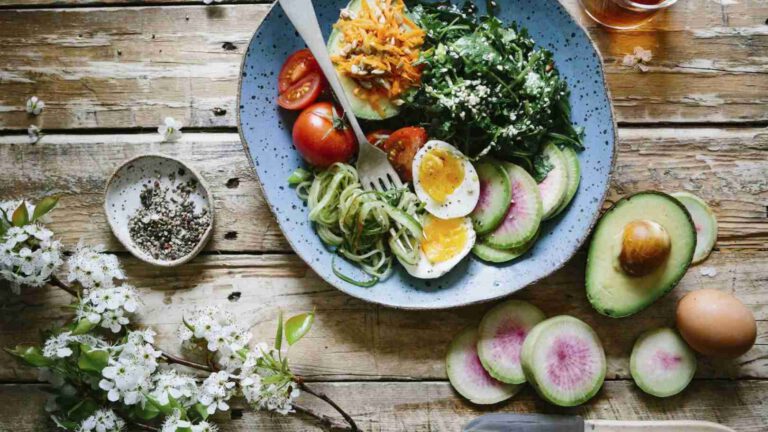What should you avoid in your diet and what should you eat if you have Hashimoto's disease?
Contents:
Chronic lymphocytic thyroiditis, commonly known as Hashimoto's disease, is now the most common autoimmune disease in countries where iodine intake is adequate. It is also the most common cause of hypothyroidism. Interestingly, thyroid dysfunction occurs ten times more frequently in women than in men.
People diagnosed with Hashimoto's disease should be treated under strict medical supervision. In addition, implementing a few new rules and healthy habits can significantly support the treatment process. Along with regular physical activity, adequate sleep, and rest of sufficient quantity and quality, a proper diet is one of the most important factors that can support the recovery process in Hashimoto's disease. So let's take a look at what's worth eating and what foods are best avoided in the diet if you're diagnosed with chronic thyroiditis.
Diet for Hashimoto's disease
A healthy, balanced diet rich in vitamins and minerals supports the proper functioning of the body, including the thyroid. Ingredients that have a positive effect on the thyroid include iodine, selenium , zinc, vitamin D, and iron. Therefore, the diet of people with Hashimoto's disease must include these elements. To replenish their levels in the body, patients should regularly consume products such as:
- Pumpkin seeds and sunflower seeds ,
- Brazil nut ,
- Almonds, walnuts and hazelnuts,
- fatty sea fish,
- lean meat of good quality,
- Whole grain cereal products (e.g. whole wheat pasta, buckwheat),
- freshly ground flaxseed,
- Sourdough rye bread,
- Olive oil or rapeseed oil ,
- eggs,
- bitter cocoa and its products,
- fermented natural milk products such as yogurt, buttermilk , kefir, buttermilk, low-fat cottage cheese,
- Lentils , chickpeas,
- fresh vegetables and fruit,
- fresh and dried herbs, basil , thyme , oregano, cinnamon, turmeric.
What to avoid with Hashimoto's disease
People struggling with this disease should limit their consumption of products that are a source of goiter substances. These significantly reduce the body's iodine consumption. They negatively affect thyroid function, especially when products containing them are consumed raw. Foods containing the most goiter-producing compounds include:
- cauliflower,
- Broccoli,
- kohlrabi,
- cabbage,
- kale,
- Spinach,
- Turnip,
- The Brussels sprouts,
- sweet potatoes,
- Soy,
- millet ,
- Peanuts,
- pears ,
- Peaches.
Thermal processing of foods such as cauliflower, broccoli, cabbage, or sweet potatoes can reduce the presence of goiter-forming substances. They can then be consumed in moderation. Patients with Hashimoto's disease must strictly limit their daily diet, especially highly processed foods containing simple sugars, excess salt, and trans fats. A proper diet and supplementation with vitamin D and iodine according to a doctor's guidelines can significantly contribute to combating this disease.
THE PUBLISHER'S CHOICE
Dried plums 1 kg BIOGO
- £6.08
- £6.08
- Unit price
- / per
Dried White Mulberries 500 g ORGANIC
- £5.06
- £5.06
- Unit price
- / per
Almonds 1 kg BIOGO
- £10.13
- £10.13
- Unit price
- / per
Cranberries sweetened with apple juice organic 1 kg BIOGO
- £14.19
- £14.19
- Unit price
- / per
Dried dates 1 kg BIOGO
- £3.65
- £3.65
- Unit price
- / per
Unpeeled buckwheat groats 1 kg BIOGO
- £2.44
- £2.44
- Unit price
- / per
Walnuts 800 g BIOGO
- £7.50
- £7.50
- Unit price
- / per
Peeled sunflower seeds 1 kg BIOGO
- £2.63
- £2.63
- Unit price
- / per
PULLED ORGANIC SUNFLOWER SEEDS 1 KG BIOGO
- £3.85
- £3.85
- Unit price
- / per












































































































































